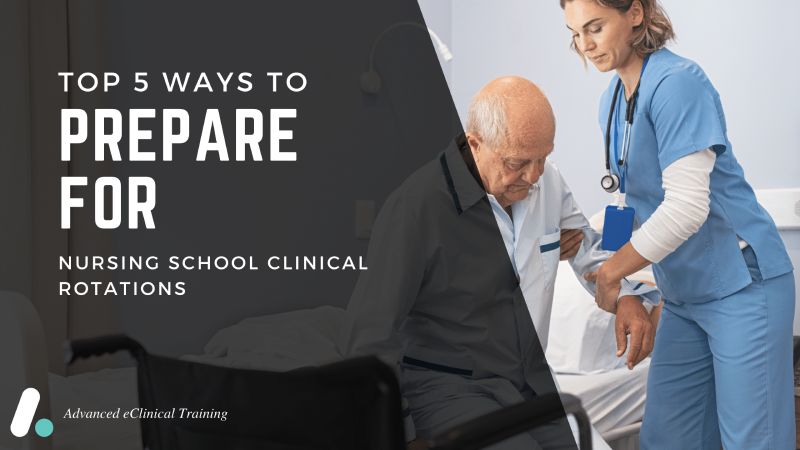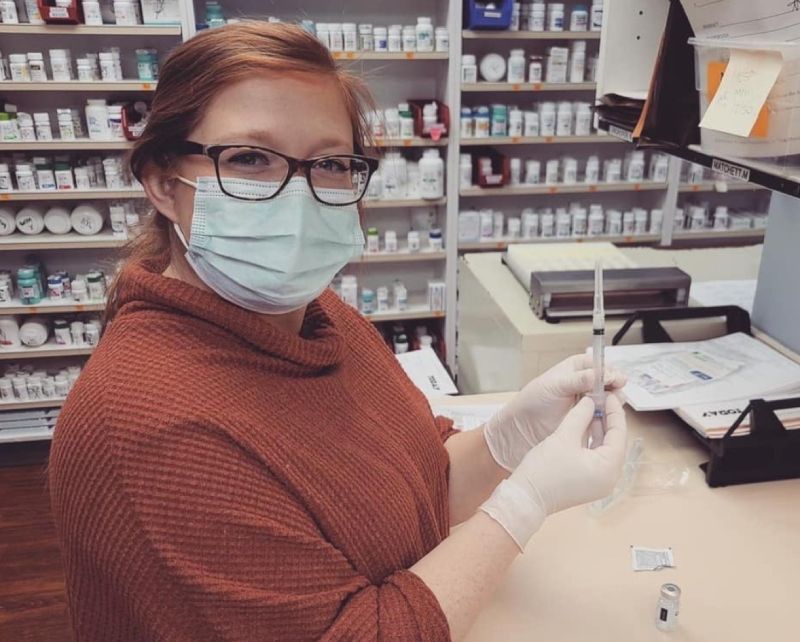10 Ways to Get Clinical Experience for Med School
Embarking on a medical journey is no small feat. Beyond meeting rigorous academic requirements, one critical factor often determines the trajectory of a medical career: clinical experience. This hands-on exposure not only deepens your understanding of the medical field but also plays a vital role in strengthening your med school application. But how many clinical hours for med school are truly necessary to make your application stand out?
As a pre-med student, navigating the process of gaining clinical experience for med school is a pivotal aspect of your journey. From shadowing physicians to volunteering in healthcare settings, every hour counts toward highlighting your commitment to the profession. Let’s explore how to approach this essential milestone and make the most of your pre-med journey.
Why is Clinical Experience Necessary?
Clinical experience for medical school is more than just a line item on your application; it’s a major component of your preparation as a future physician. This hands-on exposure not only solidifies your commitment to the medical field but also provides an invaluable glimpse into the daily realities of patient care and being a member of a healthcare team.
So, what is clinical experience for med school, and why does it matter? At its core, clinical experience involves direct interactions with patients or active participation in healthcare settings. Whether you’re shadowing a physician, volunteering in a clinic, or taking advantage of any other role in a healthcare setting, these experiences help you develop essential skills like communication, empathy, and problem-solving. They also offer insight into the ethical and emotional complexities of patient care, ensuring you’re prepared for the challenges ahead.
Most competitive applicants accumulate hundreds of clinical hours for med school, showcasing their dedication and firsthand understanding of the profession. By seeking out meaningful experiences, such as EMT work, volunteering, or shadowing, you can demonstrate your readiness to bridge the gap between academic knowledge and the practical demands of a medical career.
Unlocking Opportunities: What Counts as Clinical Experience?
When preparing for the next step in their education, one of the most pressing questions students ask is, “What counts as clinical experience for med school?” There are many ways in which meaningful interactions with patients or active roles in healthcare settings can help you gain insights into the realities of the industry. The great news? Many of these roles not only enhance your application but can also be paid positions, helping you save money for medical school tuition payments.
Types of Clinical Experience
As you prepare for medical school, you’ll need to understand two categories of clinical experience — paid and unpaid. Besides the monetary support, or lack thereof, each experience offers unique benefits and contributes to your development as a well-rounded medical school applicant.
Paid Clinical Experience
Paid clinical experience involves jobs in the healthcare field that provide direct patient interaction while offering financial compensation. These roles not only enhance your med school application but also allow you to earn an income, helping to offset education and living expenses.
Some common examples of paid clinical experience opportunities are CCMA, EMT, and medical scribe roles.
Paid positions are an excellent way to build experience while balancing financial responsibilities, making them a popular choice for pre-med students.
Unpaid Clinical Experience
Volunteering, shadowing, and other types of unpaid clinical experience are equally important for building a strong med school application. These opportunities allow you to gain exposure to various specialties and develop a first-hand understanding of patient care.
Examples of unpaid clinical experience include physician shadowing, hospice care volunteering, and hospital volunteering.
Unpaid roles are often more flexible, allowing students to fit these experiences around academic schedules, and they demonstrate your passion for medicine beyond financial motivation.
10 Ways to Gain Clinical Experience
Building clinical experience is a vital part of preparing for medical school and enhancing your application. It helps you accumulate necessary clinical hours while offering firsthand exposure to patient care and the workings of the healthcare system. Here are some of the best ways to gain meaningful clinical experience:
1. Shadowing a physician
Shadowing a physician offers a behind-the-scenes look at daily responsibilities, from observing patient interactions to medical decision-making, and the dynamics of healthcare teams. Shadowing is an excellent way to explore the realities of a medical career and develop insights into daily demands.
2. Volunteering as an EMT
EMTs act fast when emergency calls are received in order to provide immediate, often life-saving, care. This high-pressure, hands-on role not only gives you direct patient care experience but also sharpens your decision-making and teamwork skills. Becoming an EMT requires rigorous training, but the experience is invaluable for aspiring doctors.
3. Become a certified clinical medical assistant
CCMAs are responsible for essential patient care tasks like checking vitals, helping with procedures, and documenting patient interactions. This paid role is ideal for gaining hands-on experience in clinics or hospitals.
4. Volunteer at a hospice care center
Volunteering at a hospice center gives you a unique chance to support terminally ill patients and their families. It helps build emotional resilience and gives you a deeper understanding of end-of-life care, showing you how important empathy and professionalism are in medicine.
5. Work as a medical scribe
Medical scribes work closely with doctors to document patient encounters and maintain accurate medical records. Scribes are exposed to medical terminology and patient care processes, all of which are invaluable for pre-med students.
6. Work as a patient care technician
Patient Care Technicians (PCTs) assist patients with daily care activities, such as bathing, feeding, and monitoring vitals. This role provides hands-on patient interaction and a clear understanding of caregiving basics, making it a great way to gain valuable clinical experience.
7. Take part in clinical research
Taking part in clinical research allows you to contribute to medical advancements while gaining exposure to the scientific side of healthcare. Many roles involve patient interaction, such as recruiting participants or collecting data.
8. Get a job as a phlebotomist
Typically based in laboratories and medical centers, phlebotomists are responsible for collecting blood and other specimens, such as urine, for laboratory testing. This hands-on role provides experience in patient interaction and procedural skills.
9. Become a CNA
CNAs support nurses by providing essential care to patients, such as assisting with mobility, feeding, and hygiene. This role involves consistent patient interaction and builds a solid foundation for understanding patient care.
10. Work as a pharmacy technician
Pharmacy technicians assist pharmacists in preparing and dispensing medications, as well as interacting with patients to explain prescriptions. While this role focuses less on direct patient care, it offers valuable insights into medication management and the healthcare system as a whole.
Tips for Choosing Clinical Experiences
Choosing the right clinical experiences is crucial to getting the most out of them. These experiences help you build the necessary skills and gain the exposure you need to succeed as a future healthcare provider, but only if they align with your career goals and personal interests. Here are some tips to guide you in selecting the best clinical experiences:
- Think about your clinical interest, including what areas of medicine appeal to you most. By aligning your clinical experiences with your interests, you’ll gain more meaningful exposure and a better understanding of different medical fields.
- Consider your schedule, specifically the personal and professional commitments you’ll need to work around to accommodate your medical training. Be realistic about how much time you can commit and the workload you can handle.
- Don’t limit yourself to just one type of clinical experience. Gaining a variety of experiences will provide you with a well-rounded perspective on healthcare. By exploring different roles and settings, you’ll develop a broader skill set and a deeper understanding of the diverse challenges healthcare professionals face.
- Make a long-term commitment in order to consider roles you can see yourself participating in well into the future. Plus, continuity will give you a deeper, more impactful understanding of the healthcare system.
- Explore alternative clinical experience opportunities, even if they don’t follow a traditional path. For example, you might explore roles in clinical research or work as a pharmacy technician. These alternative experiences can still provide valuable patient exposure and teach you important medical skills, even if they aren’t directly involved in hands-on patient treatment.
- Ask yourself what you want to take away from your experience. Are you looking to build procedural skills, develop patient empathy, or simply learn more about the day-to-day realities of healthcare? Knowing your goals will help you choose the opportunities that will help you grow both personally and professionally.
FAQs
What counts as clinical experience?
Clinical experience involves meaningful interactions with patients or active roles in healthcare settings, allowing you to gain insights into the realities of the industry.
What doesn’t qualify as clinical experience?
While still valuable in their own regard, administrative roles, positions without patient interaction, sales jobs, and any positions that don’t involve medical know-how do…
How many clinical experience hours do I need for medical school?
While there’s no set number of clinical hours required for medical school, competitive applications typically include at least 150–200 hours of meaningful, hands-on work.
What’s the best way to get clinical experience if I go to school or work full-time?
Working or going to school full time and earning clinical experience is possible with careful planning and flexibility.
How do I find shadowing opportunities?
You can start by reaching out directly to physicians or healthcare providers in your area.
Begin Gaining Clinical Experience for Med School With ACT
Starting your medical journey doesn’t have to feel overwhelming. With an online medical certification from Advanced eClinical Training, you’re taking an important step toward a rewarding career in healthcare.
If you’re looking for more personalized support, our Pre-Med Mentorship Program (PMMP) is a great resource. You’ll receive step-by-step guidance on your path to medical school, including one-on-one mentoring from our expert MD advisors who have walked the same path. The mentorship goes beyond clinical experience, offering comprehensive support such as application planning, personal statement writing, interview prep, and more.
With our advisors by your side, you’ll have the insights and encouragement needed to navigate the challenges ahead.
Why wait? Enroll today and take the first step toward realizing your medical career dreams!


